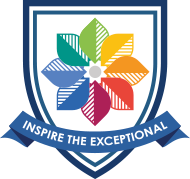Lesson Structure
A well-planned and sequenced curriculum needs to be delivered by excellent teachers who have clear subject knowledge to enable them to plan a progressive learning journey that leads to children knowing, remembering and applying more of their chosen curriculum.
At Oldfield Brow, we believe that EVERY child deserves a consistent high-quality teaching experience and part of this involves ensuring that we follow clear and consistent lesson structures when delivering our curriculum across a range of subjects.
Flashback 4:
Every lesson begins with a 'Flashback 4' section. This enables our learners to systematically activate prior knowledge that is needed to support their new learning in the subject. This enables our children to form explicit connections between their prior and future learning to enable them to create complete schema within the subject being taught. Flashback 4 also allows our teaching staff to systematically assess our learners' prior knowledge; identifying and then addressing gaps in learning/knowledge that are essential to enable the new learning to be remembered and applied. LINK TO COGNITIVE SCIENCE: Flashback 4 brings knowledge required for new learning into the working memory.
Connect 4:
This part of the lesson directly links to developing our children's oracy skills. In this section of the lesson, the children are exposed to and encourages our learners to use subject-specific vocabulary orally to deepen their understanding of the concepts being taught in the lesson. Learners will be asked to discuss the 'connection' between objects, words, phrases or a mixture of them all to deepen their understanding and further activate prior knowledge that can support with their future learning.
IGNITION:
Launch of new learning with a focus on how the new learning will build on what our learners already know. During this section of the lesson, our learners will be introduced to the goldilocks words and concepts that are essential in supporting their new learning in this lesson and beyond.
Modelling:
New learning is carefully modelled along with the 'thinking' processes that go behind the process of learning. This is part of promoting our learners 'metacognition' and self-regulation skills. Explicit links to prior learning are made to support the new learning taking place and formative assessment is used to inform adaptive teaching decisions.
Independent Learning:
Learning tasks are designed to enable independent learning that either instills and inspires learning and knowledge or, towards the end of the end of the learning journey and once the knowledge has been gathered, to innovate solutions to real-life problems/philosophical questions.
-
Lesson Structure - BLANK Template
download_for_offline
download_for_offlineLesson Structure - BLANK Template








